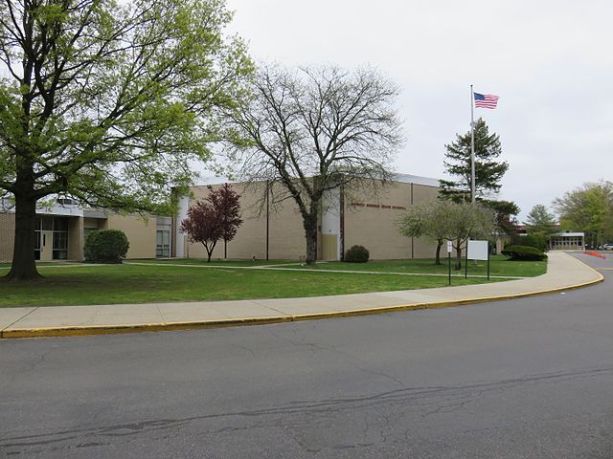The North Shore School District is facing another year of budgetary challenges spurred by the loss of revenue from the LIPA power plant, forcing the district to consider difficult decisions like increasing class sizes, cutting programs and potentially more extreme solutions.
“It is very sobering to see some of those options,” Board of Education President Andrea Macari said. “We as trustees are tasked with solving this $4 million problem this year.”
The North Shore Board of Education continued its budget challenges and priorities discussion Thursday night, which began at its last meeting on Sept. 28.
When the district began its budget process for the 2023-2024 budget, Superintendent Christopher Zublionis said it had a projected deficit of $10.7 million due to the LIPA revenue loss and inflation. He said this year the deficit projection looks “slightly better” but the district does not know everything yet.
He said the total deficit the district is projecting at the moment for 2024-2025 is $5.638 million.
Zublionis said that based on last year’s tax levy of 2%, the tax revenue increase would cover $1.78 million of that deficit. This would mean the district would have to find an additional $4 million through cuts, new revenue and/or through the use of reserves.
He said there is one big question that is driving the district’s budget: “How do we create the best possible experience for students while balancing the pressures of revenue loss, rising costs and the impact on taxpayers?”
Zublionis said the district is considering increasing class sizes, prioritizing smaller classes for younger students, and reducing sections.
With tentative numbers, the district is looking at class size caps at 26-28 students in grades six through 12, and capped at 21 students for kindergarten and first grade.
Zublionis said some scarier considerations, what he called nuclear options, the district could consider include eliminating programs, offering only certain grade levels at specific schools – referred to as Princeton planning – and closing buildings. He said they are advocating to avoid these options through long-term financial planning.
Trustee Marianne Russo said that while neighborhoods do not want to lose their schools through Princeton planning, there can be benefits to grouping together certain grades. She added that this could also centralize special education programs.
She said that currently there are differences in class sizes among schools in the district, which has led to some complaints from parents. Having certain grades at just one school could make all classes approximately the same size.
“I’m not advocating for it,” Russo said. “I’m just saying that while it is unappealing on the surface to lose your neighborhood schools, it does have its benefits.”
Mercari encouraged board members to propose creative solutions and not be afraid to take risks with ideas to help solve this complex issue for the district.
“We are all passionate about this district and we are often very passionate about our ideas and our solutions and different strategies to solve this problem,” Mercari said.
The biggest budgetary impact the district has been experiencing is the LIPA settlement, which began in June 2022 when LIPA properties were taken off the tax rolls. Since then the district has been receiving direct assessments that decrease over time.
Zublionis said the LIPA direct assessment for next year’s budget will decrease by $2,388,670. The total loss in revenue for the district due to the LIPA settlement through 2028 is $38 million.
He said that in the wake of the LIPA settlement, homeowners have had to pay a greater share of taxes. Over two decades, that increase has amounted to nearly 30%.
Zublionis said the good news is that it has not increased much this year, with a rise of 0.08% for homes. The biggest increase occurred last year, Zublionis said, but that growth is not carrying into this year’s taxes.
Last year, the district had a budget-to-budget increase of $4,390,211.96, a 3.786% increase. The tax levy rose by 3.685%.
“We entered the budget season last year with a very difficult deficit,” Zublionis said.
He attributed these challenges to inflationary costs for benefits and insurance, as well as the LIPA settlement.
Last year the district had to make $2.7 million in budget cuts, which Zublionis said was mostly done through personnel cuts. This included three administrators and 19 teachers.
He said despite making these cuts, student programs and services were preserved.
“While we’ve made sacrifices, a lot of those sacrifices are being felt by the adults and our administrators have done great work,” Zublionis said.
The board has considered hiring a consultant to oversee the budgetary processes, which Russo suggested to help determine staff efficiencies and look at revenue sources and grants.
Trustee Maria Mosca said that while she is hesitant, she is not opposed to the idea.
“The concept of fresh eyes on a challenging issue, like how do we do what we need to do in the most efficient way, the concept of having someone look anew at it and bring a new perspective is not problematic but the implementation of such a review could be,” Mosca said.
Trustee Dave Ludmar said the district has not been hesitant to hire consultants in the past and is open to the idea to help with the budgetary challenges. No definitive decision was made by the board.
The North Shore Board of Education will convene again on Nov. 9.

